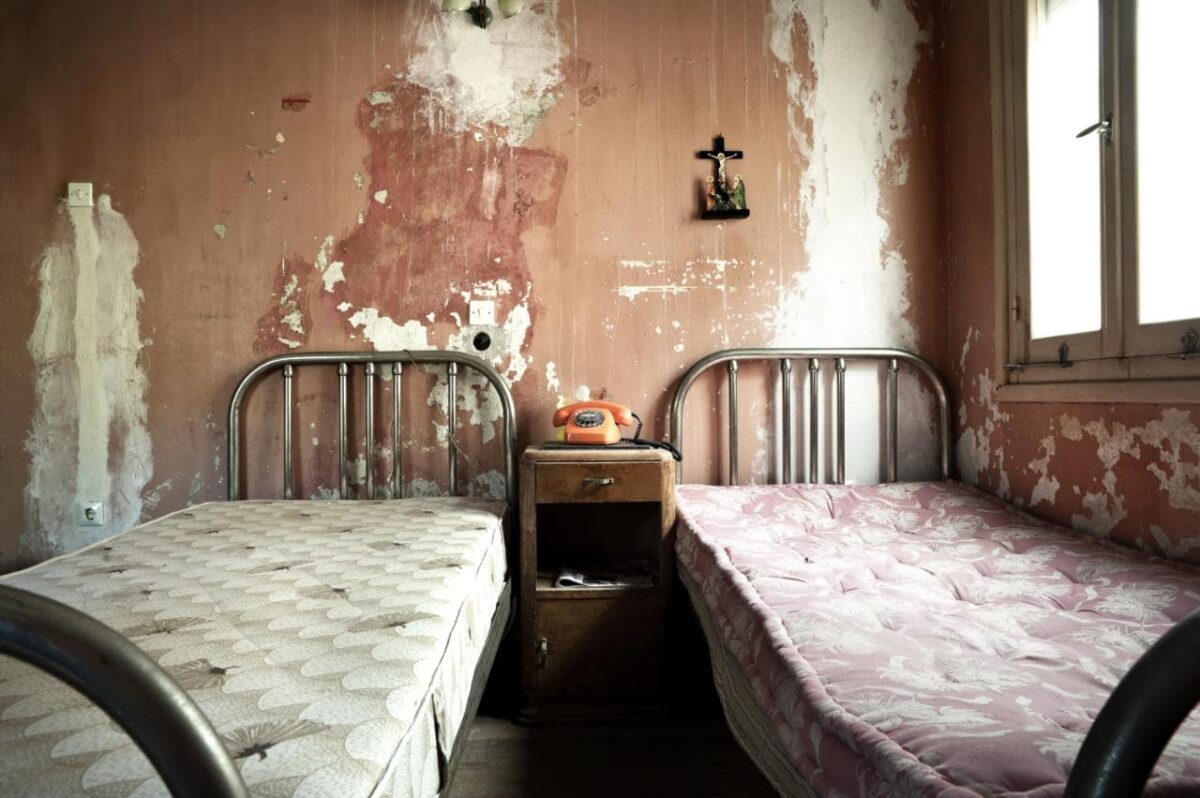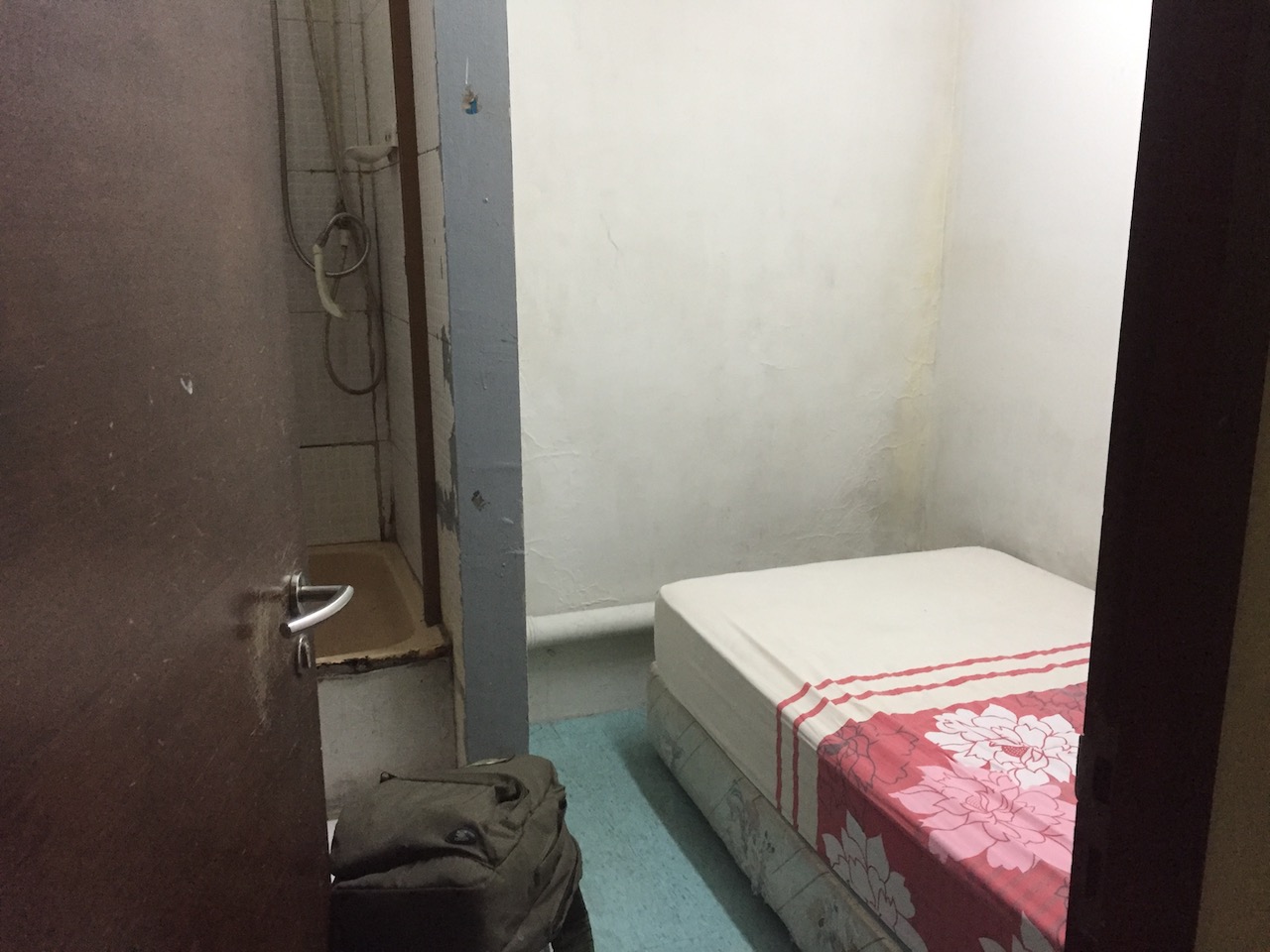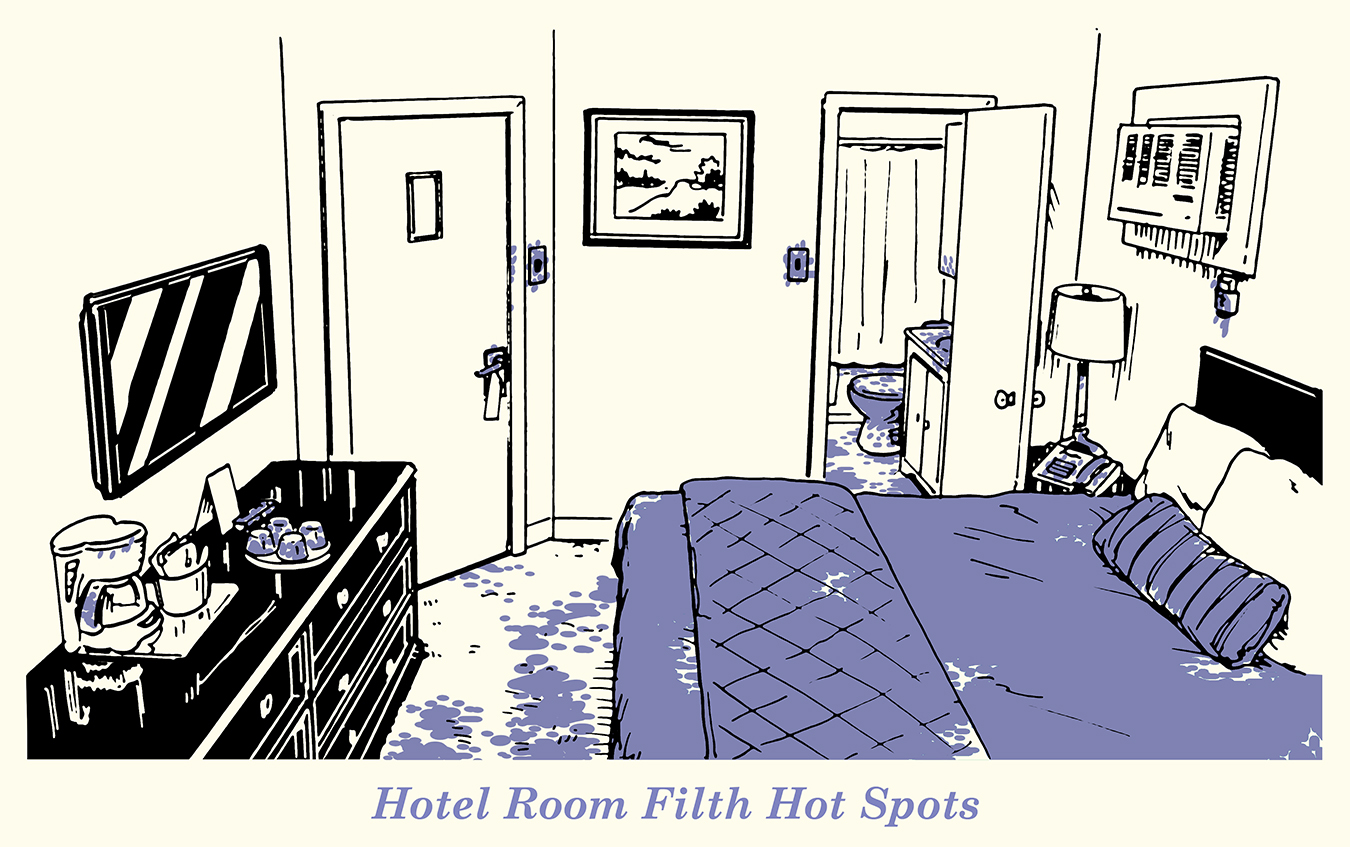INDEX
I stood in the doorway of my hotel room in Lisbon, the scent of stale air hitting me first. The promotional photos had shown a bright, crisp space.
The reality was stained carpets and a bathroom that hadn’t seen a deep clean in months. After 52 countries, I’ve noticed a clear trend, and I hear the same from other travelers: it feels like hotel quality is getting worse, even as prices climb.
It’s a frustrating situation, but it doesn’t mean you have to settle for bad stays.
This guide comes from my direct experience navigating this new travel reality. I’ll share my personal vetting process and give you practical steps for what to do when things go wrong, so you can book your 2025 trips—from a multi-city Vienna Budapest Prague trip to a simple weekend getaway—with confidence.
Is Hotel Quality Getting Worse? A Look at the Trend

Yes, many travelers report a noticeable drop in hotel quality. Several factors contribute to this decline. According to the American Hotel & Lodging Association, 65% of surveyed hotels report staffing shortages as of early 2025, with 9% describing themselves as “severely understaffed.” At the same time, operational costs have risen—making it harder to stay in Tokyo cheap or find value in other major cities—leading some properties to cut back on maintenance, updates, and service levels.
This isn’t just a feeling; it’s a visible shift. You see it in the delayed room cleanings, the worn-out furniture that doesn’t match the glossy website photos, and the shrinking list of included amenities. The industry has the highest quit rate of any sector, with 4% of workers leaving their jobs every month, creating a constant cycle of replacement rather than growth.
⚠️The Rise of “Skip-Cleaning”
A major issue I’ve seen is the reduction in daily housekeeping. Many hotels now offer it “by request” only. This means your room might not be serviced for your entire stay unless you specifically ask, a big change from pre-2020 standards. 36% of hotels have already had to reduce services, such as daily room cleaning, due to labor shortages.
Source: Personal observation across multiple hotel chains in Europe and Asia, confirmed by Hotel News Now industry data.
Are Hotel Star Ratings Reliable Anymore?

Hotel star ratings are becoming less reliable for judging the actual quality of your stay. These ratings often focus on the presence of amenities—like a pool, a 24-hour front desk, or a restaurant—rather than the quality of service, cleanliness, or the condition of the room itself.
A hotel can hold a 4-star rating for years based on its facilities, even if the management has let service and upkeep decline sharply. That’s why I now place much more weight on recent, detailed guest reviews over official star classifications. Industry data shows that mid-tier hotels (3-4 star) are actually performing better in guest satisfaction than luxury properties, as five-star hotels struggle with elevated expectations amid rising operational costs.
They provide a general baseline for available facilities.
A five-star rating usually guarantees things like a concierge or room service.
Useful for filtering searches for basic needs, like an on-site gym.
The system is familiar to most travelers.
Ratings don’t reflect cleanliness or staff attitude.
A hotel can be old and worn but still keep its high star rating.
Criteria can vary wildly from one country to another.
They are a poor indicator of the actual guest experience.
My 7-Step Vetting Process for Booking a Dependable Stay

To avoid disappointment, I’ve developed a strict vetting process. It goes far beyond just looking at the overall review score. These steps help me uncover the reality of a property before I ever click “book.”
Always filter reviews to show the most recent ones first.
I only consider feedback from the past 1-2 months.
Look for recurring themes: dirty rooms, noise, or broken items.
A single bad review can be an outlier, but a pattern is a red flag. Hotel management and staff can change very quickly, so reviews from six months ago might describe an entirely different experience.
Open the hotel’s professional photos next to guest-submitted photos.
Look for differences in wear and tear on furniture and carpets.
Guest photos show you the real, unfiltered condition of the room.
Pay close attention to bathrooms and signs of mold or grime.
Use Google or Apple Maps to look at the hotel’s exterior and street.
Does the neighborhood look well-maintained and safe?
Check for nearby construction sites, nightclubs, or busy highways.
This gives you a sense of the area that booking sites don’t show, which is crucial when deciding on the best area to stay in Rome for a big event or any major city.
Search for the hotel’s location tag or hashtags on Instagram.
You’ll find recent, unfiltered photos and videos from guests.
This is a great way to see the pool, lobby, and rooms in real-time.
It’s one of my best tricks for getting an honest look beyond what someone might specifically upload to complain or praise.
A quick call with a simple question can reveal a lot.
Are they professional and helpful, or do they sound bothered?
This gives you a first impression of the staff’s attitude.
Poor phone service often predicts poor in-person service.
Read reviews that mention specific amenities like breakfast or Wi-Fi.
“Free breakfast” could mean coffee and a wrapped muffin.
“Free Wi-Fi” could be slow and unreliable.
Reviews tell you the actual quality of what’s advertised. Check if hotels offer QR code check-in and contactless payments, as 54% of travelers now expect these digital conveniences as standard features.
Before a non-refundable booking, I find one or two alternatives nearby.
This gives me peace of mind if the original place is a disaster.
Knowing your options prevents a panicked search upon arrival.
It’s a key part of my safety-first travel approach.
What to Do If Your Hotel Room Is Dirty

Even with careful planning, you might end up in a substandard room. Knowing what to do if your hotel room is dirty is essential. Your first hour at the property is the best time to resolve the problem effectively.
Here is the exact procedure to follow.
Before you unpack or touch anything, take clear photos and videos.
Capture any stains, dust, hair, or trash you find.
This evidence is your leverage if you need to dispute the issue.
Make sure your photos are well-lit and show the problem clearly. Check behind curtains, under the bed, and around the room to ensure it is safe.
A polite, in-person conversation is always best to start.
Explain the situation calmly and show them your photos.
Avoid getting angry, as that can make staff less willing to help.
State the facts of what you found in your room. Many hotels now have QR code systems for quick issue reporting through your smartphone.
Be specific about what you want as a resolution.
“I would like to be moved to a different, clean room.”
Or, “I would like this room to be deep-cleaned immediately.”
This helps the staff solve your problem quickly.
If the front desk agent is unhelpful, ask to speak to the manager.
If no manager is available, ask for their name and when they’ll be in.
You can also contact the booking platform you used for support.
A written complaint through the platform creates a paper trail.
How to Deal with Unresponsive Hotel Staff

Sometimes the issue isn’t the room itself but the service. Knowing how to deal with unresponsive hotel staff can turn a bad situation around. Your approach is the most important tool you have.
💡Polite but Firm: Your Best Strategy
I’ve learned that a calm, respectful, but firm tone gets the best results. Start by assuming they want to help. Clearly state the problem and what you need. If you remain polite, it’s much harder for them to dismiss your concern.
If your initial conversation doesn’t yield results, use other channels to get your point across. Creating a written record is very effective.
-
In-Person at the Front Desk
Best for immediate issues. Allows for direct conversation and showing evidence. My preferred first step for any problem.
-
Booking Platform Messaging
Creates a written record of your complaint. The platform can step in if the hotel doesn’t respond. Excellent for documentation.
-
Direct Email to Management
Good for non-urgent follow-ups or if you can’t get a manager in person. Use this to formalize your complaint after the initial attempt.
Is Airbnb Cleaner Than Hotels Now? Rethinking Your Options

With hotel quality getting worse, many travelers wonder, is Airbnb cleaner than hotels now? The answer isn’t a simple yes or no. The variability with Airbnbs is higher, but so is the potential for a superior experience. A great Airbnb, especially from a Superhost, is often cleaner and better maintained than a mid-range hotel today. Spring 2025 data shows a 90% year-on-year increase in solo travel searches, with many travelers seeking alternatives to traditional hotels.
The key is to consider alternatives to the standard hotel model, especially when exploring cities with diverse neighborhoods like those covered in a guide on where to stay in Warsaw.
Pros: Front desk support and some level of standardization.
Cons: Declining service and cleanliness is a growing problem.
Rooms can be small, and amenities are often basic.
They can feel impersonal for longer stays. Many now offer contactless check-in via QR codes and mobile key access to reduce front desk interactions.
A great mix of hotel services with apartment-style living.
Often include kitchens and more space, great for families.
Many are newer builds and have higher cleanliness standards.
My top choice for stays longer than a few nights.
Individual hosts are accountable through public reviews.
Filter for “Superhost” status and high cleanliness ratings.
Read reviews carefully for mentions of cleanliness and accuracy.
Offers a more local experience and often better value. Be cautious about what you share on social media and don’t post pictures of any location while you’re still there.
FAQs: Your Questions on Worsening Hotel Quality

Why does it feel like hotel prices are up but quality is down?
It’s a combination of inflation, higher labor costs, and persistent staffing shortages. According to the American Hotel & Lodging Association, 65% of hotels report staffing shortages as of 2025, with many properties severely understaffed. Hotels are passing their increased operational costs to customers, but without adequate staff to maintain previous standards, the quality of service and maintenance suffers. Wages in the hospitality industry have risen by 20% since 2019, yet hotels remain nearly 10% below pre-pandemic employment levels.
Can I get a refund for a bad hotel stay?
A full refund is rare unless the situation is extreme (e.g., unsafe conditions). More commonly, you can negotiate for a partial refund, a room change, or service credits (like a free meal). Documenting the problem with photos and reporting it immediately is critical for a successful claim. Many hotels now offer digital complaint systems through QR codes or mobile apps for faster issue resolution.
Are independent hotels better than large chains now?
It varies greatly. Some independent or boutique hotels offer superior service because the owner is directly involved. However, they can also lack the standardized complaint resolution process of a large chain. The best approach is to vet each property individually using recent reviews, not just by its brand. Industry data shows that mid-tier hotels (3-4 star) are currently performing better in guest satisfaction than luxury properties.
How important is the “1-Month Rule” for checking reviews?
It’s one of the most critical steps. Hotel management, staff, and cleanliness standards can change very quickly. Reviews from six months ago might describe an entirely different experience than what you’ll find today. Focusing on the last 30-60 days gives you the most accurate, up-to-date picture of the hotel’s current condition. This is especially important given the high turnover rates in hospitality – 4% of workers leave their jobs every month.
Is looking at guest photos on booking sites enough, or should I really check social media?
While guest photos on booking sites are a great start, checking location tags on platforms like Instagram is a pro-level step. You often find more recent, candid videos and images that aren’t curated for a review. It helps you see the hotel’s atmosphere and condition in real-time, beyond what someone might specifically upload to complain or praise. This gives you an unfiltered view of the property’s current state.
Are serviced apartments (aparthotels) always a better option now?
They are often a strong alternative, providing more space and a kitchen, which is my preference for longer stays. Many are newer constructions with higher standards. However, they aren’t automatically better. You must apply the same 7-step vetting process to them as you would any hotel, paying close attention to recent reviews about service and cleanliness. Look for properties with contactless check-in options and digital concierge services.
What if the hotel manager is unresponsive after I complain?
If both the front desk and the manager fail to resolve the issue, your next step is to contact the customer service of the platform you booked through (like Booking.com or Expedia). Present your photo evidence to them. This creates an official record and puts pressure on the hotel to respond, as their relationship with the booking site is at stake. Many platforms now offer 24/7 support through chat or phone.
With hotel quality so unpredictable, should I avoid non-refundable bookings?
Booking non-refundable rates requires more caution now. If you find a great deal that’s hard to pass up, be sure you’ve done a very thorough vetting process first. I always have at least one backup hotel option researched before committing to a non-refundable stay. This way, if the worst happens, I know where I can go without having to search in a panic. Consider travel insurance for additional protection.
